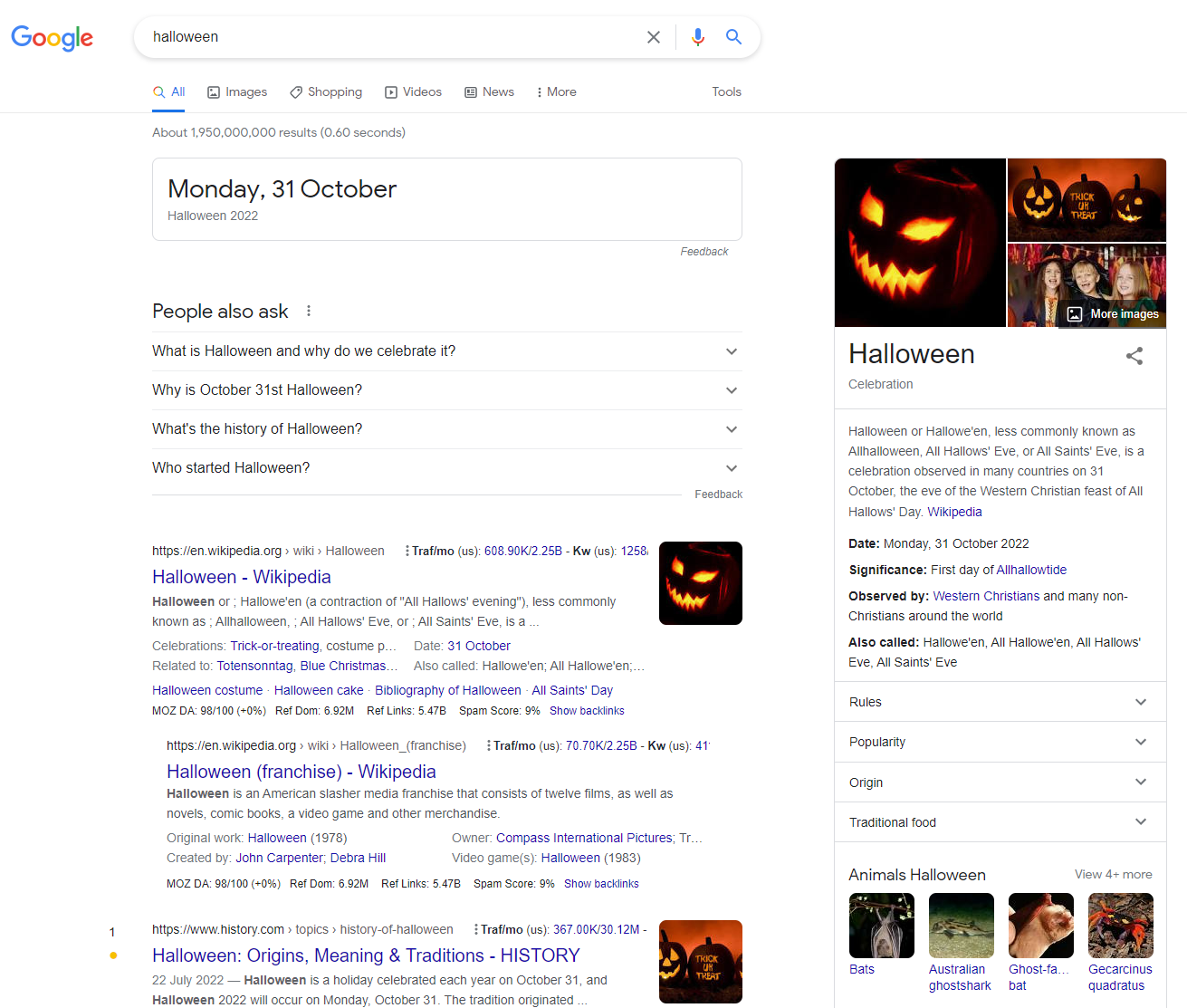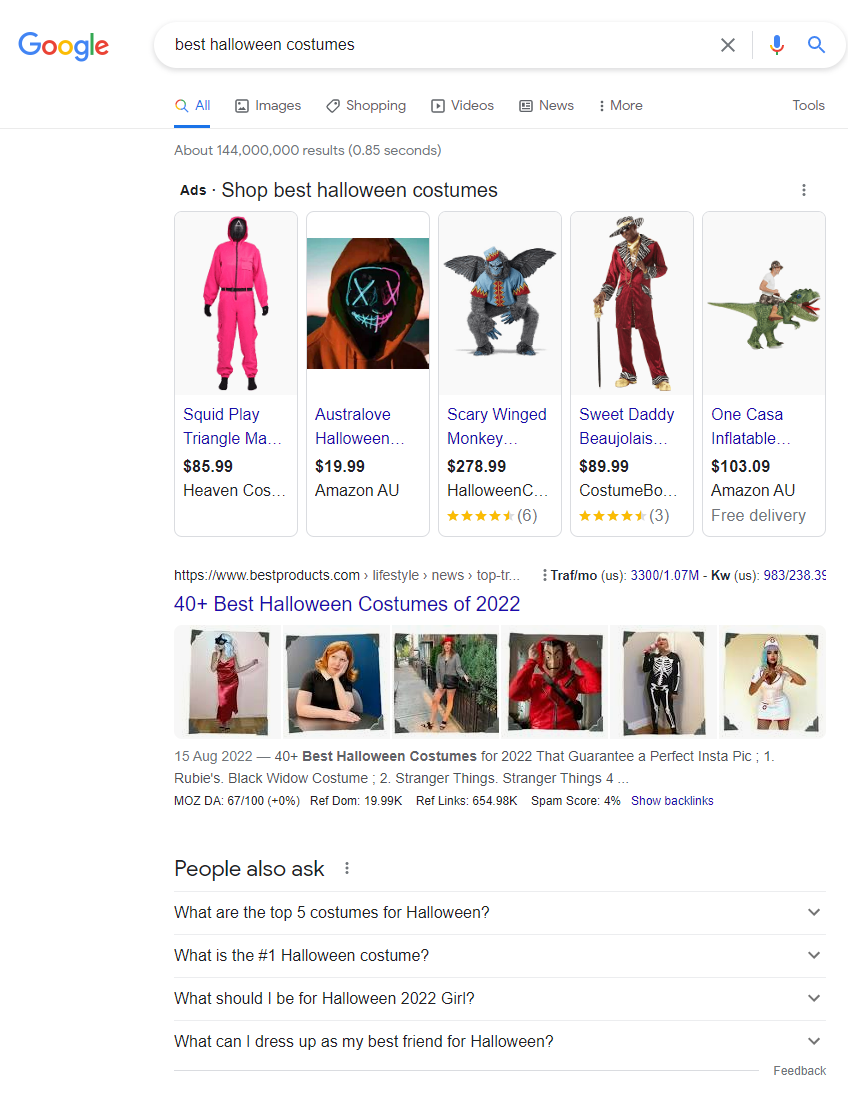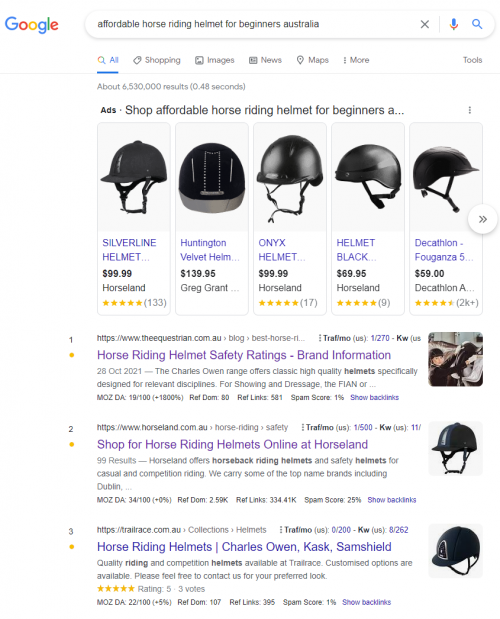
Keyword Search Volume – A Fine Balance Between Low and High
Erin Payne
Sep 15 .
Low volume = low value, right? Well, while high volume, low competition keywords are the sweet spot, they aren’t always easy to find, and having a mix of these with other search terms that may not seem as “valuable” is crucial to any good SEO strategy.
Keyword volume tells you how popular a search term might be. It is an approximate number of searches for a particular keyword, usually calculated by month.
Low search volume means there are less people searching for that term, while high search volume means the term is trending upwards. However, this data is not perfect (as with anything a search engine or analytics tool can provide!). The time period, the competition, and the future all impact the true value of search volume.
High volume keywords don’t always mean more eyes on your site! There are many reasons why low volume keywords are an important part of your keyword strategy.
The more search volume a keyword has, the more likely it has high competition, and is too broad for you to really see a difference. For example, the term “cro” has a search volume of 14,800 with a keyword difficulty of 88, in comparison to “cro services” with a search volume of 30 and difficulty of 46.
While “cro” gets a lot of searches, the chances of showing anywhere near the first page, let alone the top of the first page, are incredibly slim! In comparison, low volume keywords (especially those below 100) tend to be both highly relevant to your audience while also less likely to be targeted by your competitors.

Search volume can only be calculated based on data in the past. While data is very helpful for making calculated decisions, there is a clear flaw in this case. Certain terminology or new products may not be “known” and searched for YET but that doesn’t mean they aren’t about to be!
Being at the forefront of a new keyword can mean you take up precious real estate in the SERPs that is very difficult to beat when competitors come in down the track. For example, crypto may have had very minimal search volume a decade ago, but if you started creating quality content around it early on, you would be ahead of the competition when they start trying to get into the game.

The intent around a user’s query can change dramatically with just one word. Say someone looks for “halloween” versus “best halloween costumes” – these are going to get very different results.
Halloween, naturally, gives lots of information around what Halloween is, how it originated, the traditions related to it, plus a little about the Halloween movie series. When researching keywords, it’s important to think about intent, and choosing something more specific can give you much better results, even when search volume is much lower.


You know when you think of something then type the whole thing into Google hoping to get a super specific answer? That’s referred to as a longtail keyword. For example, I have just picked up horse riding again after not riding for many years (yep, Kim and I are the resident horse girls in the office!), and I am looking into getting a helmet if I decide to continue to ride regularly. But I am going to be particular about it. So, I might look up “affordable horse riding helmet for beginners australia”.
And to be honest, the results are not GREAT. And I wish they were. I need my niche, long search to get a bang on result! This is where low volume keywords have power. If someone wrote an article about this topic with links to where to buy, I would be all over it! It would answer my question perfectly and Google would reward that. This gets you not only good rankings, but a user who is further down the marketing funnel, and more likely to convert.

Ultimately, when researching keywords, it is important to consider a balance of high and low volume keywords that are (perhaps most importantly) not so highly competitive that you never have a chance. It’s important to consider a whole host of factors when picking keywords, and it’s a little more complex than it may first appear, so the next time you are doing it or get a list from an SEO, remember there’s value in the little guys!